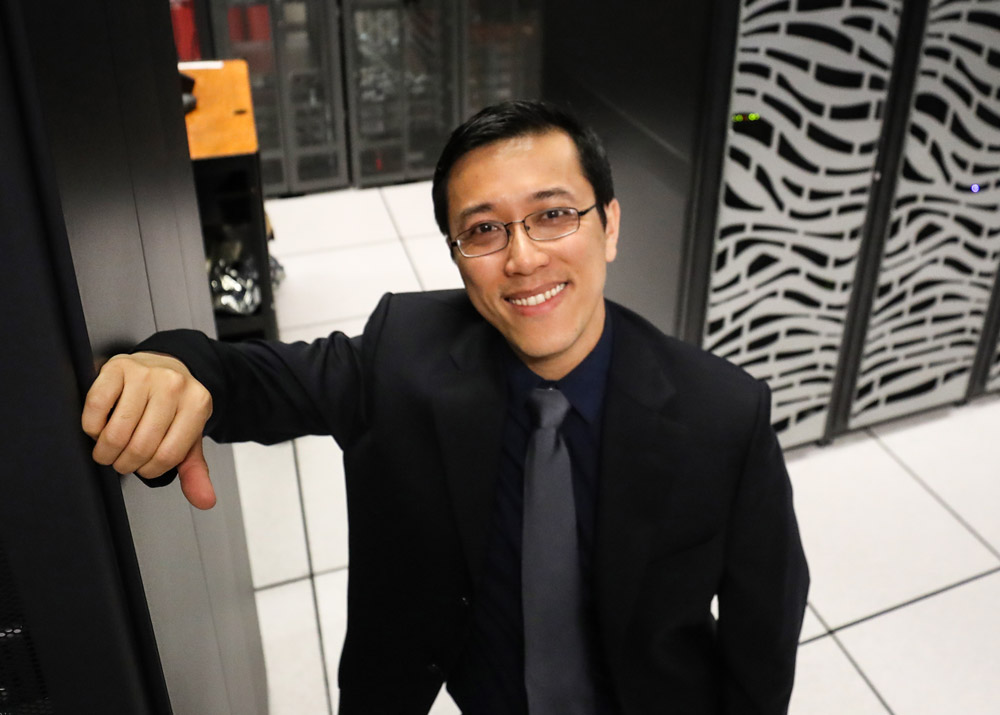Equipping Engine Engineers

Stanley Ling, PhD, Assistant Professor of Mechanical Engineering
Once injected into an engine, liquid fuel begins breaking into small pieces. These droplets form a spray that mixes with air, vaporizes and powers the engine. It’s not something most people think about, but these sprays play an important role in the efficiency of a variety of combustion engines.
Stanley Ling, PhD, hopes to someday see engines that burn fuel with greater efficiency and decreased pollution. His approach is not to build a better fuel injector or engine but to create a resource for engineers to do so. Such a program would require a better understanding of the spray variables that take place once the fuel is injected. These variables — impacting the size, distribution, binding and dynamic characteristics — are vast and little understood.
“The good news is that the energy channels for the motion of the fuel, the air and how they mix together are analyzed by a set of equations,” Ling said. “However, the equations are very difficult to solve. It requires a super computer and numeric coding. We aim to create never-developed-before methods to test and model spray formation and create an efficient software to give to engineers and researchers — a powerful tool to tackle these problems.”
Ling utilizes the power of high-performance computing at Baylor toward that end. He utilizes Kodiak, Baylor’s supercomputer, to perform rigorous calculations and simulations and develop the 3D models necessary to understand the comprehensive array of ways spray behaves inside a system. As he does so, Ling is utilizing computing power he hopes to save for future engineers, cutting the amount of energy they need to address these challenges.
“With this advanced understanding of droplets, we will use these methods to develop a software that is both powerful and efficient — complex enough to provide the detail they need but without requiring the computing power currently necessary,” Ling said.
The educational component of Ling’s grant is a summer science camp aimed at sparking interest in engineering. The camp will be for students grades 7-12, particularly those with physical limitations.